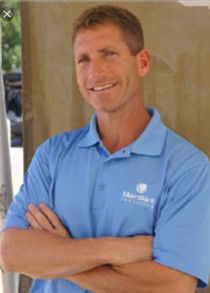










-
Natural Upcycling -
 Harry S. Cohen
Harry S. Cohen
CEO/FOUNDER
Natural Upcycling
Contact:
Harry S Cohen
585-
Interview conducted by:
Lynn Fosse, Senior Editor
CEOCFO Magazine
Published – November 18, 2024
CEOCFO: Mr. Cohen, what is Natural Upcycling?
Mr. Cohen: Natural Upcycling is a food waste recycling business serving the mid-
CEOCFO: Would you explain food recycling?
Mr. Cohen: Both in the U.S. and globally, a significant portion of food is wasted. This waste accounts for 30-
 Our process involves collecting organic materials from sources like grocery stores and food manufacturers. We then process this waste through anaerobic digestion or composting. Anaerobic digestion, a method widely used in Europe, has gained popularity in the U.S. It allows us to harness bacteria to break down methane, converting it into resources such as electricity or natural gas. Composting is also highly sustainable, allowing food waste to decompose naturally and return nutrients to the soil, which is beneficial for landscaping, gardens, and agriculture.
Our process involves collecting organic materials from sources like grocery stores and food manufacturers. We then process this waste through anaerobic digestion or composting. Anaerobic digestion, a method widely used in Europe, has gained popularity in the U.S. It allows us to harness bacteria to break down methane, converting it into resources such as electricity or natural gas. Composting is also highly sustainable, allowing food waste to decompose naturally and return nutrients to the soil, which is beneficial for landscaping, gardens, and agriculture.
CEOCFO: What is the interest today from businesses and potential clients?
Mr. Cohen: Many organizations are increasingly focused on social and environmental responsibility. There’s a strong demand for zero-
CEOCFO: What challenges are there in the process?
Mr. Cohen: Food waste collection is unlike traditional waste management. Though food recycling has become more mainstream in recent years, it still presents unique challenges. For example, food waste can produce strong odors and attract pests, so we’ve invested in specialized, waterproof trucks with built-
Another challenge is contamination—when non-
CEOCFO: How do you separate recyclable from non-
Mr. Cohen: Food waste can come in various packaging forms, including plastic containers, cans, and bottles. We typically provide customers with designated receptacles for food waste, separate from other recycling streams like cardboard or mixed paper.
Our team educates clients extensively on the process. While this requires more time during implementation, it’s essential for success. We also continue to engage and motivate our customers to keep contamination low, ensuring the quality of the materials we process.
CEOCFO: Natural Upcycling was named as a top company in Rochester. What is your growth strategy now?
Mr. Cohen: Word-
Our success also relies heavily on a dedicated team—clean trucks, efficient service, and committed employees who take pride in their work. Happy clients and a positive reputation fuel our growth.
CEOCFO: Are you facing challenges finding workers, as many companies are?
Mr. Cohen: Human resources are always a focus for us. We’ve committed to paying well and creating a balanced work environment that values both productivity and quality of life. This has contributed to our low turnover rate, which we’re very proud of.
As we expand, our biggest challenge will be maintaining our strong culture. Growth means integrating new people who align with our values, and that’s where we’re focusing our HR efforts.
CEOCFO: What is your geographic range today, and do you see that expanding?
Mr. Cohen: We’re based in Rochester, New York, but we currently service the northeast and mid-
CEOCFO: How do you deal with some of the challenges of an expanding business when you can’t be as hands-
Mr. Cohen: Leading a growing business requires a constant focus on strategic delegation. As a founder, it’s not easy to step back, but it’s essential to hire the right talent, trust them, and give them the tools they need to succeed. We are increasingly focusing on building a process-
CEOCFO: What should people know about Natural Upcycling?
Mr. Cohen: We pride ourselves on being a customer-
Natural Upcycling | Food Waste Recycling | Food Waste Disposal | Harry S. Cohen | Natural Upcycling -